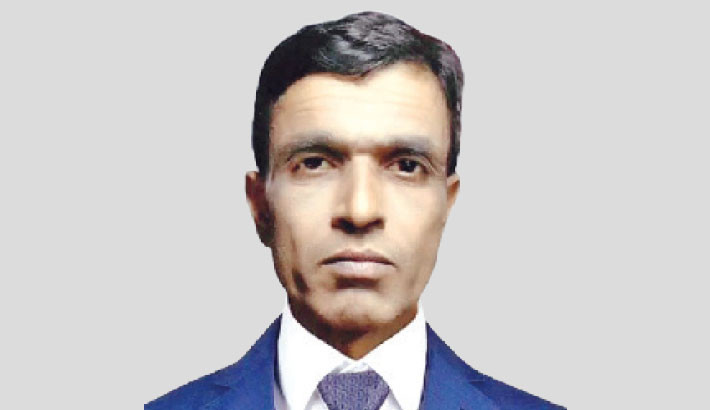Bangladesh’s Food Insecurity Turning Appalling
Arnab Ashraf
Published: 29 Oct 2024, 09:21 AM

Bangladesh is facing a food insecurity marked by economic instability, disrupted food production and supply chain challenges. Despite significant advancements over the past two decades, the convergence of climate change, economic fluctuations and socio-political issues has introduced new threats to food availability and accessibility.
Recent analyses from the Food and Agriculture Organisation (FAO), World Bank (WB), and World Food Programme (WFP) underscore this alarming trend. As of 2024, approximately 22% of the Bangladeshi population (over 37 million people) are experiencing food insecurity. This represents an increase from previous years, driven by inflation, natural disasters and the lingering effects of the COVID-19 pandemic.
The WB reports that food prices have surged nearly 15% in the past year, primarily due to global supply chain disruptions and rising energy costs. This inflation has hit lower-income households the hardest, exacerbating malnutrition rates, particularly among vulnerable groups such as children and pregnant women.
WFP data reveals a stark reality: over 10 million children in Bangladesh suffer from acute malnutrition. Without urgent intervention, the health and development of an entire generation are at risk.
Climate change remains a pivotal factor in Bangladesh’s food security landscape, as the country is among the most climate-vulnerable globally, frequently facing floods, cyclones and rising sea levels.
The FAO has reported that extreme weather events have displaced millions and inflicted severe damage on agricultural land, which is vital to the nation’s economy. In 2023 alone, severe flooding impacted over 1.5 million hectares of cropland, resulting in the loss of approximately 1.2 million metric tons of rice. This not only jeopardises food availability but also undermines farmers’ livelihoods, perpetuating a cycle of poverty and food insecurity.
In response, the WFP has initiated programmes to support climate-resilient agricultural practices. However, the scale of these challenges remains daunting. Economic instability compounds the crisis, with the WB attributing recent food price spikes to both global market trends and domestic economic policies. The Bangladesh government has implemented various measures, such as subsidies for essential food items and emergency assistance programmes, but their effectiveness has been mixed. While subsidies provide temporary relief, they fail to address underlying issues related to agricultural productivity and supply chain efficiency. The FAO advocates for a more integrated approach, emphasising investments in infrastructure, research and development, and sustainable farming practices to bolster long-term food security.
The ramifications of food insecurity extend beyond mere availability; they significantly impact public health. The WFP reports that the prevalence of stunting among children under five remains alarmingly high at 28%. Malnutrition not only affects individual health but also has lasting implications for economic productivity and national development.
To tackle these pressing challenges, the government, NGOs and international organisations have launched various nutrition-specific initiatives aimed at improving dietary diversity and nutritional education. The FAO stresses the need to integrate nutrition into agricultural policies to ensure that food systems provide not only adequate calories but also essential nutrients for a healthy population.
Innovative solutions are being explored to address food security challenges. Digital technologies, such as mobile applications for farmers, show promise in enhancing agricultural practices and market access. The WB is supporting initiatives that leverage technology to improve productivity and connect smallholder farmers to markets.
International cooperation remains vital. The FAO, WFP and various NGOs are collaborating to implement food assistance programmes, build resilience in agricultural communities and promote sustainable practices. The Global Food Security Partnership has been instrumental in mobilising resources and expertise to address food insecurity on a larger scale.
The state of food security in Bangladesh in 2024 reflects a complex interplay of challenges that necessitate urgent and coordinated responses. While the country has made strides in reducing hunger over the past decades, the current landscape demands renewed commitment to address the root causes of food insecurity.
Investing in climate-smart agricultural practices and infrastructure is crucial for enhancing resilience against natural disasters. By adopting techniques that prioritise environmental sustainability and climate variability, agricultural systems can become more adaptable. This investment mitigates risks associated with extreme weather while promoting sustainable development.
Integrating nutrition into agricultural policies is essential to ensure food systems that prioritise both the quantity and quality of food produced. By emphasising nutritional education, communities can make informed dietary choices, improving public health outcomes and reducing malnutrition.
Developing comprehensive social protection programmes is vital for on-going support to the most vulnerable populations. These initiatives can help mitigate the impacts of economic shocks and food insecurity, ensuring access to necessary resources during challenging times.
Engaging with global partners is the key to leveraging resources and expertise in addressing food security challenges. International collaboration can facilitate the sharing of best practices, mobilise funding and enhance collective capacity to tackle these pressing issues effectively.
While the challenges are significant, a pathway forward combines immediate relief efforts with long-term strategies aimed at creating a more sustainable and resilient food system in Bangladesh. With organised efforts from the government, international organisations and local communities, progress towards achieving food security for all is possible. Yet, an efficient political economy system is essential to successfully navigate these complex challenges.
________________________
The writer is a journalist

